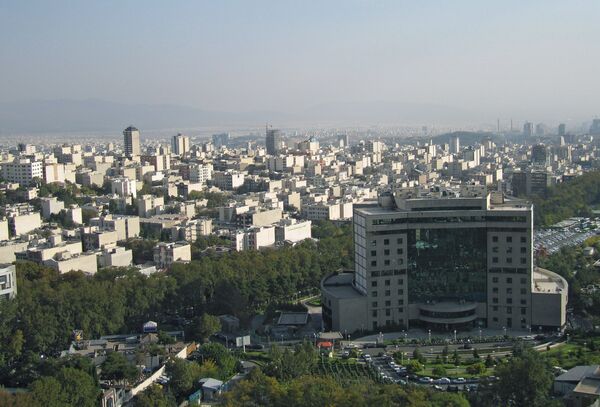U.S. charges that Iran's secret services planned to assassinate the Saudi ambassador in Washington will be examined by the UN Security Council at a date yet to be named. Meanwhile, the United States, Saudi Arabia and Iran have all sent protest letters to UN Secretary-General Ban Ki-moon.
Iran, incidentally, is sending conflicting signals. Its foreign minister says the assassination story will be investigated, while President Mahmoud Ahmadinejad claims there is nothing to investigate, that the U.S. is always inventing some new charges against Iran.
No whiff of war
As we track statements made in Washington against Iran, we find ourselves comparing the present situation with what took place prior to the spring of 2003, when President George Bush for months accused Saddam Hussein's regime of every conceivable crime against peace and humankind, especially in the development of weapons of mass destruction.
Later, in March 2003, these accusations developed into a war - when U.S. troops invaded Iraq (Operation Iraqi Freedom).
The results, however, were negative, because no traces of such weapons were found anywhere, yet the objective (a change of regime) was achieved. Now the situation appears almost the same: charges, calls for new international sanctions, etc...
If one listens only to the U.S. Congress (it has held hearings on the Iranian affair), the situation appears to be very much like 2002-2003.
Republican Peter King describes the story of a terrorist attack on an ambassador on U.S. soil as an act of war, and his Democrat colleague, Carl Levin, agrees with him, if reluctantly. Ileana Ros-Lehtinen, head of the House Committee on Foreign Affairs, says the Obama administration should have changed its approach to Iran (read: for a harsher one). Meanwhile, spokespersons at the administration are fending off the criticism by saying an unprecedentedly extensive raft of measures is being drafted against Iran.
But who knows what the current Congress might do? And are current developments around Iran really that similar to 2003? Not if we consider the facts and not just the U.S. charges.
To begin with, since 2003 Iran has been caught between U.S. troops on three sides: from the south - the Persian Gulf and the U.S. fleet, from the west - Iraq, and from the east - Afghanistan. If the current situation overheats, invasion troops will not have to be deployed from scratch. Since October 11 (when the U.S. Attorney-General disclosed the Iranian plot) some interesting reports came from two Iranian borders.
First, the U.S. will, after all, pull a large number of military personnel out of Iraq by the end of this year (from the current 40,000). Recently, the U.S. toyed with the idea to try and convince the friendly Iraqi authorities to keep at least some military instructors in Iraq. But a seemingly minor setback intervened: the right of local courts to try Americans. Iraq demanded that the courts be given the right due to U.S. servicemen having tortured prisoners of war on Iraqi soil. The U.S. is, naturally, opposed to this.
So will the U.S. leave Iraq? And what about Afghanistan, where a general pullout is scheduled for 2014? The Washington Post carried another story from Pakistan saying that Pakistani authorities, especially the military, are less and less eager to engage the Taliban and other U.S. opponents on their soil. Instead they are seeking an agreement with them. One of the results has been that U.S. troops deployed on the Afghanistan-Pakistani border now increasingly come under fire from the Pakistani side. At the very least this means that Pakistani authorities are not very enthusiastic about containing the Taliban. How then can war be waged under these circumstances?
To all intents and purposes, U.S. troops will get out of Afghanistan - the experts agree that the administration is determined to withdraw, thus allowing Iran to heave a sigh of relief.
Far Eastern pivot
Now let us take a look at the Obama administration's foreign policy. The best insight comes from the pen of Secretary of State Hillary Clinton in Foreign Policy magazine and is entitled: "America's Pacific Century."
We will not analyze Clinton's highly interesting concept of a U.S. "return" to the Pacific region, the most important in the world, and her ideas regarding a China policy. Instead, we will quote a few introductory words from her article: "The future of politics will be decided in Asia, not Afghanistan or Iraq."
And the words that over the past 10 years America has allocated immense resources in Afghanistan and Iraq, while in the next 10 years "we need to be smart and systematic about where we invest time and energy." It is necessary "to pivot" and turn toward the East.
In this context, everything begins to fall into place with regard to Iranian policy and the recent terrorist plot within America's new foreign policy as a whole.
The picture is as follows: it was not we, the Democrat administration, which started the war in the Broader Middle East, which has benefited perhaps only Iran, while East Asia saw the emergence of a new U.S. global rival, i.e., China. So we will concern ourselves with China and the East, while these rocky, war-troubled places filled with terrorists will be left to you ("you" incidentally implies Russia, with its Central Asian neighbors bordering on Afghanistan).
And Iran? Ah yes, Iran... Whose country's ambassador did the mysterious terrorists with Iranian connections want to assassinate? A Saudi ambassador? Then let Iran sort the issue out with Saudi Arabia, which dislikes it immensely. Take this conflict as a parting gift. If America is lucky, the conflict will take long time to unravel.
The views expressed in this article are the author's and do not necessarily represent those of RIA Novosti.



